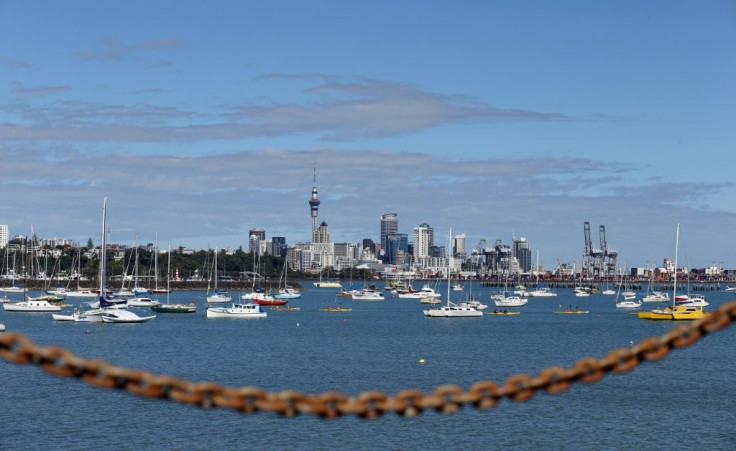Snap National Lockdown In New Zealand Over Single Virus Case
New Zealand imposed a snap three-day lockdown Tuesday after identifying a single case of locally transmitted Covid-19 suspected to be the Delta variant, Prime Minister Jacinda Ardern said.
Ardern said New Zealand, which had not recorded any infections in the community for six months, could not take any chances with the "game changer" Delta strain.
"We have seen what can happen elsewhere if we fail to get on top of it. We only get one chance," Ardern said in a televised national address.
The New Zealand leader cited Australia's struggles to contain the highly transmissible variant for her "short, sharp" response after a 58-year-old Auckland man was diagnosed with coronavirus from an unknown source.
"We are better to start high and be cautious, then move out as soon as we are comfortable doing so, than to start low and be in that phase (lockdown) for much, much longer," she said.
"You only need to look at Australia to see the alternative."
The initial plan is for New Zealand to remain in lockdown for three days from Tuesday night, with Auckland and the nearby Coromandel area facing the restrictions for a week.
Officials said a major factor behind the strong response was the fact that the Auckland case has no obvious connection to the border or managed isolation.
"This case was identified in Auckland but is a national issue," director-general of health Ashley Bloomfield said.
"Because we cannot link it to the border it's possible there could be other cases around in Auckland and other chains of transmission (outside the city)."
New Zealand has won widespread praise for its coronavirus response -- centred on eliminating the virus rather than containing it -- and has recorded just 26 deaths in a population of five million.

It had not needed to impose national stay-at-home orders for more than a year and life has remained close to normal, with no limits on social gatherings and limited mask use.
It also maintains strict border controls -- with mandatory two-week quarantine for international arrivals.
"The reason New Zealand has been held up as an example is because we've used strategies like this before and they've worked... the best thing we can do to get out of this as quickly as we can is to go hard," Ardern said.
Ardern said New Zealand was one of the last places in the world to record Delta in the community, giving it the advantage of learning from others' experience.
But she said it was safest to presume the strain was now present, even though laboratory tests would not offer confirmation until Wednesday.
"Every case we've had at MIQ (border quarantine) recently has been the Delta variant and Delta is surging around the world," she said.
"We need to assume this will be too and this has shaped all the decisions we have made."
Auckland has previously been forced into three brief periods of lockdown since an initial eight-week national state of emergency at the beginning of the pandemic last year.
The most recent stay-at-home orders in the city of two million ended in March.
Officials earlier Tuesday outlined details of unrelated virus cases found at a border quarantine facility in Auckland that showed how easily the Delta strain spreads.
An investigation found three people sharing a room were infected by a Delta case staying across the corridor after their doors were both open at the same time for just three to five seconds.
"It really does highlight how this virus is continually evolving and how vigilant we all need to continue to be," quarantine chief Brigadier Rose King said.
© Copyright AFP 2024. All rights reserved.











